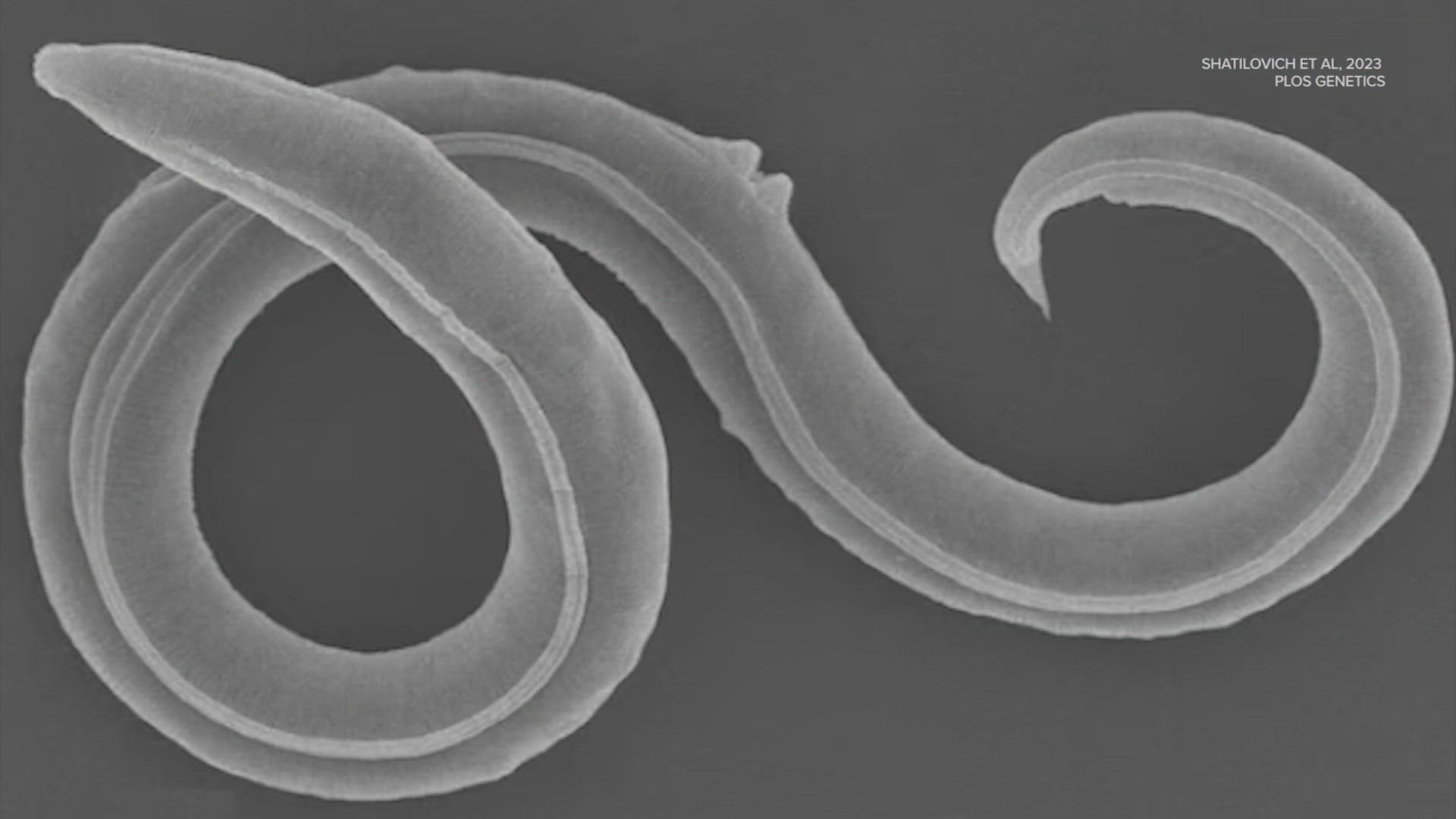HOUSTON — Scientists have woken up a 46,000-year-old roundworm.
They said the roundworm, which was of a previously unknown species, spent those tens of thousands of years deep in the Siberian permafrost. According to the Washington Post, once it was revived, researchers said it started having babies!
The findings of this roundworm were detailed Thursday in PLOS Genetics.
“It’s kind of super fascinating finally to suddenly see life, living animals crawling out of a piece of soil that been deep frozen for 46,000 years,” Dr. Philipp Schiffer from the University of Cologne told CBS News.
The Washington Post said the roundworms, also called nematodes, were brought back to life by warming the soil they were in.
The species is now known as Panagrolaimus kolymaensis. They're able to suspend metabolism, which is known as cryptobiosis.
Right now, scientists are focused on how the species adapted through that time. Schiffer said it could teach us about conservation biology and how, at a molecular level, species can adapt through changing climates.
You can read a whole lot more about these nematodes in the Washington Post.

